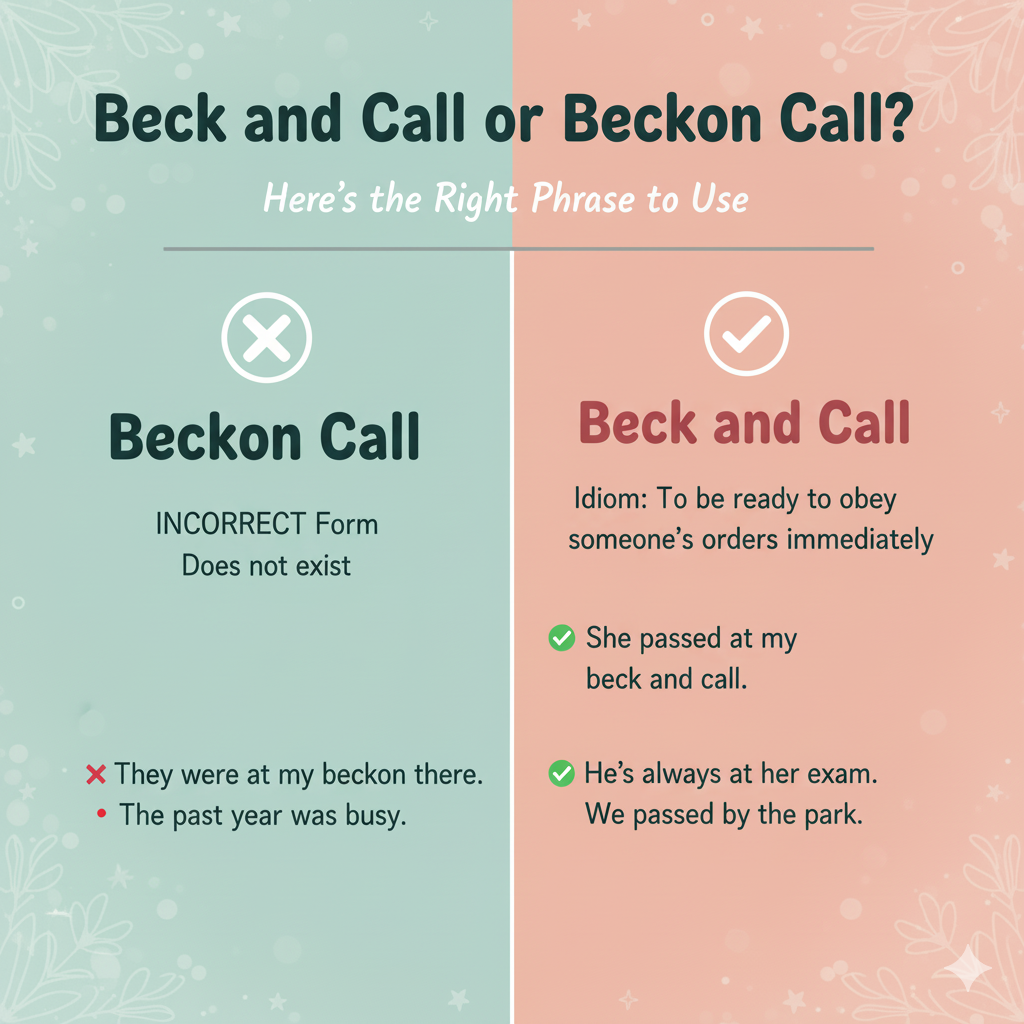Beck and Call or Beckon Call? Here’s the Right Phrase to Use

Have you ever heard someone say “at your beck and call” and wondered if it’s really “beckon call”?
You’re not alone—this is a super common mix-up because the two sound almost the same when spoken.
Today, Midoo AI will help you understand the correct phrase, what it means, and how to use it so you can sound confident in your English.
✅ Beck and Call — The Correct Phrase
“Beck and call” is the correct expression.
It means someone is always ready to do whatever you ask, immediately.
It’s often used to describe someone who is very willing or even overly eager to serve or help another person.
Examples:
- As a personal assistant, she’s at her boss’s beck and call all day.
- He has a team of helpers at his beck and call.
- The hotel staff is at your beck and call during your stay.
- My kids think I’m at their beck and call.
- She isn’t at anyone’s beck and call—she makes her own choices.
Quick Tip: Think of “beck” as a silent signal or gesture that calls someone to come and help.
❌ Beckon Call — A Common Mistake
“Beckon call” sounds similar but is incorrect.
- “Beckon” is a real word meaning “to signal someone to come over” (like waving your hand).
- But there’s no phrase “beckon call” in English. It’s just a misheard version of “beck and call.”
Example:
- ❌ The waiter is at your beckon call.
- ✅ The waiter is at your beck and call.
So remember: “beckon” is a verb, but it’s not part of this phrase.
Memory Trick
- Beck = gesture
- Call = command
→ At someone’s beck and call = ready to help whenever called.
FAQ
Q: Is “beckon call” ever correct?
A: No, it’s just a misheard version of “beck and call.”
Q: What does “beck” mean?
A: It’s an old word meaning a quick nod or motion to signal someone.
Q: Is this phrase formal or casual?
A: It’s common in both spoken and written English, especially in formal or descriptive contexts.
Q: Can I use “beckon call” in creative writing?
A: Only if you want to show someone speaking incorrectly—otherwise, use “beck and call.”
Final Tip from Midoo AI
If you want to sound fluent, always use the correct phrase:
“at someone’s beck and call” — not “beckon call.”
Now that you know the meaning, try using it naturally in your own sentences!